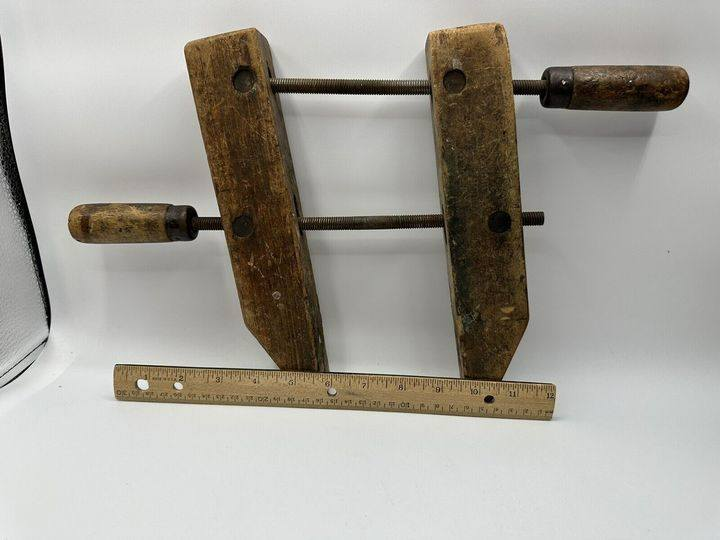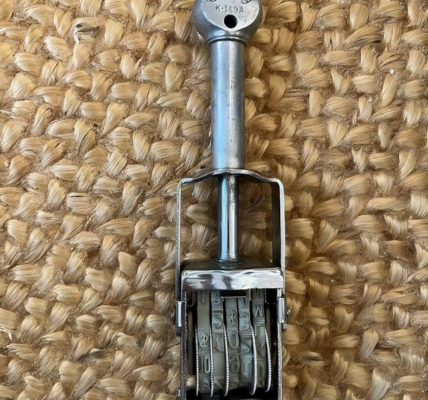People sought to understand the purpose of this item and were met with an unexpected answer.-s1
The adjustable wood clamp is a fundamental tool in the world of woodworking, dating back to the 19th century. It revolutionized the way craftsmen approached their work, providing a versatile and reliable solution for securing wood pieces during construction. Over time, the adjustable wood clamp has remained an indispensable tool for both hobbyists and professional woodworkers alike. This article explores the history, evolution, and enduring importance of the adjustable wood clamp in woodworking today.
The Origins of the Adjustable Wood Clamp

The story of the adjustable wood clamp begins in the 19th century, when the need for a flexible and reliable method to hold wood pieces in place became crucial to improving carpentry work. Early models were crafted primarily from durable metals like iron and steel. These clamps featured simple but effective mechanisms that allowed woodworkers to adjust the pressure and width to fit different-sized wood pieces. This innovation dramatically increased accuracy, improved efficiency, and reduced errors in woodworking tasks.
These early clamps quickly gained popularity for their practicality. Craftsmen valued their ability to hold pieces firmly in place while still allowing for adjustments. Whether gluing wood together or assembling furniture, the adjustable wood clamp played a critical role in achieving precise alignments and durable joints. As a result, it became a staple in every woodworker’s toolbox.
The Evolution of the Adjustable Wood Clamp
While the core concept of the adjustable wood clamp has remained consistent—securing wood pieces with customizable pressure—modern iterations have evolved significantly in terms of materials, features, and functionality. Early clamps were heavy, rugged tools made of iron or steel, but today’s wood clamps often incorporate lighter, high-strength materials such as aluminum or durable plastics. This allows for better maneuverability without compromising strength.
Additionally, modern clamps come in a variety of sizes, shapes, and designs, each suited for specific tasks. From bar clamps to pipe clamps, modern versions offer different clamping forces and jaw sizes to fit various woodworking projects. Whether you’re working on intricate wood carvings or large-scale furniture assembly, there’s a clamp designed for the job. However, despite the technological advancements, the underlying purpose remains unchanged: to hold wood securely in place while allowing adjustments as needed.
Vintage Adjustable Wood Clamps: A Legacy of Craftsmanship
For many woodworkers, vintage adjustable wood clamps hold a special place in their tool collection. These clamps were often crafted with meticulous attention to detail, using strong, durable metals and reliable mechanisms designed to withstand the rigors of woodworking for decades. Many of these vintage tools are still in use today, a testament to their durability and craftsmanship.
In addition to their practical value, vintage clamps carry a unique aesthetic appeal. Their rugged industrial design and the patina developed over years of use give them a distinct charm. Owning and using a vintage wood clamp can add a touch of history and character to any workshop, serving as a reminder of traditional craftsmanship.
The Role of Adjustable Wood Clamps in Modern Woodworking
Although the woodworking industry has seen significant technological advancements over the years, the core function of adjustable wood clamps remains as relevant today as it was in the 19th century. Woodworkers continue to rely on these tools to achieve precision, ensure strong bonds, and improve the overall quality of their projects.
Modern woodworkers use adjustable clamps for a wide range of applications, from gluing boards together to assembling complex furniture pieces. The consistent pressure they provide is essential for creating tight, durable joints that can withstand the test of time. Whether working with hardwoods or softwoods, adjustable clamps help maintain the integrity of the wood while the adhesive dries, ensuring a flawless finish.
Why Collectors and Enthusiasts Love Vintage Clamps

In recent years, there has been a resurgence of interest in vintage woodworking tools, with the adjustable wood clamp being a highly sought-after item among collectors and woodworking enthusiasts. These clamps represent a connection to the past, a time when tools were crafted with longevity in mind. Built to last generations, many of these vintage clamps have become family heirlooms, passed down from one generation of woodworkers to the next.
The appeal of vintage adjustable wood clamps lies not only in their practicality but also in their craftsmanship. Their robust construction allows them to handle heavy clamping loads, and they often outperform modern equivalents in terms of versatility. For example, vintage clamps can easily be adapted for use in different applications, making them invaluable in both small projects and large-scale builds.
The adjustable wood clamp has stood the test of time, evolving from its 19th-century origins into an essential tool in the modern woodworker’s arsenal. Its versatility, reliability, and ability to hold wood securely while providing adjustable pressure have made it indispensable in both professional and hobbyist woodworking. Vintage adjustable clamps, with their rich history and superior craftsmanship, continue to be valued by collectors and woodworkers alike.
As woodworking continues to evolve, the adjustable wood clamp will remain a timeless tool that connects traditional practices with modern techniques, ensuring that craftsmen can produce high-quality, precise work for years to come.




